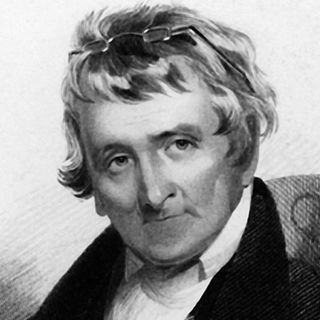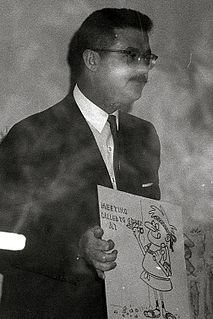A Quote by Archibald Alexander
In reviewing the most mysterious doctrines of revelation, the ultimate appeal is to reason, not to determine whether she could have discovered these truths; not to declare whether, considered in themselves, they appear probable; but to decide whether it is not more reasonable to believe what God speaks than to confide in our own crude and feeble conceptions. No doctrine can be a proper object of our faith, which is not more reasonable to believe than to reject.
Related Quotes
I don't believe in God because certain reasons and arguments weigh more heavily in my mind than others, not because I have willfully decided to reject my creator, as many religious people seem to think. I could no more simply decide to believe in God than I could decide to like beetroot, just like that.
And when someone suggests you believe in a proposition, you must first examine it to see whether it is acceptable, because our reason was created by God, and whatever pleases our reason can but please divine reason, of which, for that matter, we know only what we infer from the processes of our own reason by analogy and often by negation.
Have faith in man, whether he appears to you to be a very learned one or a most ignorant one. Have faith in man, whether he appears to be an angel or the very devil himself. Have faith in man first, and then having faith in him, believe that if there are defects in him, if he makes mistakes, if he embraces the crudest and the vilest doctrines, believe that it is not from his real nature that they come, but from the want of higher ideals.
To bring the matter to one point, Is the power who is jealous of our prosperity, a proper power to govern us? Whoever says, No, to this question, is an independent, for independency means no more than this, whether we shall make our own law, or, whether the king, the greatest enemy which this continent hath, or can have, shall tell us there shall be no laws but such as I like.
The time is now near at hand which must probably determine whether Americans are to be freemen or slaves; whether they are to have any property they can call their own; whether their houses and farms are to be pillaged and destroyed, and themselves consigned to a state of wretchedness from which no human efforts will deliver them. The fate of unborn millions will now depend, under God, on the courage and conduct of this army. Our cruel and unrelenting enemy leaves us only the choice of brave resistance, or the most abject submission. We have, therefore, to resolve to conquer or die.
He didn't know whether we created God in our own image or whether God created us without quite knowing what he was doing. He believed that God, or whatever brought us here, lives in each of our deeds, in each of our words, and manifests himself in all those things that show us to be more than mere figures of clay.
If wine disappeared from human production, I believe there would be, in the health and intellect of the planet, a void, a deficiency far more terrible than all the excesses and deviations for which wine is made responsible. Is it not reasonable to suggest that people that never drink wine, whether naive or doctrinaire, are fools or hypocrites....?
Do you believe in luck, Ludlow?" I had thought about this more than once in my life. "I believe some poeple are luckier than others."..."Which do you believe in, luck or Destiny?" Joe considered a moment befoe replying, "We make our own luck, Ludlow, by our actions and our state of mind. As such you control your own fate. Oney one thing is certain: None of us can escape the grave.
Contemporary philosophers are facing problems that were unthinkable only one century ago, such as whether space and time are mutually Independent, whether there is objective chance or only uncertainty, whether physics can explain chemical change, whether our behavior is fully determined by our genomes, whether ideation can change the brain, or whether either the economy or ideas are the ultimate roots of the social.
Now, Bella suspected by this time that Mr. Rokesmith admired her. Whether the knowledge (for it was rather that than suspicion) caused her to incline to him a little more, or a little less, than she had done at first; whether it rendered her eager to find out more about him, because she sought to establish reason for her distrust, or because she sought to free him from it; was as yet dark to her own heart. But at most times he occupied a great amount of her attention.
I discovered that it is necessary, absolutely necessary, to believe in nothing. That is, we have to believe in something which has no form and no color--something which exists before all forms and colors appear... No matter what god or doctrine you believe in, if you become attached to it, your belief will be based more or less on a self-centered idea.
God is the highest good of the reasonable creature. The enjoyment of him is our proper; and is the only happiness with which our souls can be satisfied. To go to heaven, fully to enjoy God, is infinitely better than the most pleasant accommodations here. Better than fathers and mothers, husbands, wives, or children, or the company of any, or all earthly friends. These are but shadows; but the enjoyment of God is the substance. These are but scattered beams; but God is the sun. These are but streams; but God is the fountain. These are but drops, but God is the ocean.





































